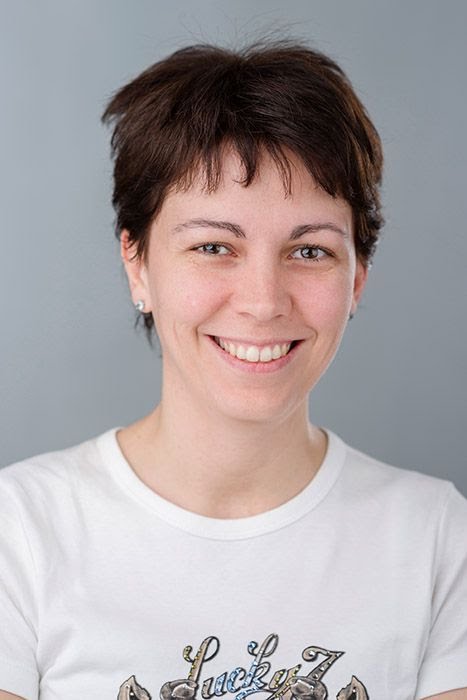Studying at the University of Verona
Here you can find information on the organisational aspects of the Programme, lecture timetables, learning activities and useful contact details for your time at the University, from enrolment to graduation.
Academic calendar
The academic calendar shows the deadlines and scheduled events that are relevant to students, teaching and technical-administrative staff of the University. Public holidays and University closures are also indicated. The academic year normally begins on 1 October each year and ends on 30 September of the following year.
Course calendar
The Academic Calendar sets out the degree programme lecture and exam timetables, as well as the relevant university closure dates..
| Period | From | To |
|---|---|---|
| Primo Semestre Magistrali | Oct 2, 2017 | Dec 22, 2017 |
| Secondo Semestre Magistrali | Feb 26, 2018 | May 25, 2018 |
| Session | From | To |
|---|---|---|
| Esami sessione invernale Magistrali | Jan 8, 2018 | Feb 23, 2018 |
| Esami sessione estiva Magistrali | May 28, 2018 | Jul 6, 2018 |
| Esami sessione autunnale 2018 | Aug 27, 2018 | Sep 14, 2018 |
| Session | From | To |
|---|---|---|
| Lauree sessione autunnale (validità a.a. 2016/17) | Nov 27, 2017 | Nov 28, 2017 |
| Lauree sessione invernale (validità a.a. 2016/17) | Apr 4, 2018 | Apr 6, 2018 |
| Lauree sessione estiva (validità a.a. 2017/18) | Sep 10, 2018 | Sep 11, 2018 |
| Period | From | To |
|---|---|---|
| All Saints Day | Nov 1, 2017 | Nov 1, 2017 |
| Festa Immacolata Concezione | Dec 8, 2017 | Dec 8, 2017 |
| attività sospese (Natale) | Dec 23, 2017 | Jan 7, 2018 |
| Easter break | Mar 30, 2018 | Apr 3, 2018 |
| Liberation Day | Apr 25, 2018 | Apr 25, 2018 |
| attività sospese (Festa dei lavoratori) | Apr 30, 2018 | Apr 30, 2018 |
| Labour Day | May 1, 2018 | May 1, 2018 |
| Festa Patronale | May 21, 2018 | May 21, 2018 |
| attività sospese estive | Aug 6, 2018 | Aug 24, 2018 |
Exam calendar
Exam dates and rounds are managed by the relevant Economics Teaching and Student Services Unit.
To view all the exam sessions available, please use the Exam dashboard on ESSE3.
If you forgot your login details or have problems logging in, please contact the relevant IT HelpDesk, or check the login details recovery web page.
Academic staff
 marcella.veronesi@univr.it
marcella.veronesi@univr.it
Study Plan
The Study Plan includes all modules, teaching and learning activities that each student will need to undertake during their time at the University.
Please select your Study Plan based on your enrollment year.
1° Year
| Modules | Credits | TAF | SSD |
|---|
2° Year activated in the A.Y. 2018/2019
| Modules | Credits | TAF | SSD |
|---|
2 courses to be chosen among the following
2 courses to be chosen among the following
| Modules | Credits | TAF | SSD |
|---|
| Modules | Credits | TAF | SSD |
|---|
2 courses to be chosen among the following
2 courses to be chosen among the following
| Modules | Credits | TAF | SSD |
|---|
Legend | Type of training activity (TTA)
TAF (Type of Educational Activity) All courses and activities are classified into different types of educational activities, indicated by a letter.
Introduction to dynamic optimization with economic applications (2017/2018)
Teaching code
4S003723
Academic staff
Coordinator
Credits
2
Language
English
Scientific Disciplinary Sector (SSD)
NN - -
Period
Not yet assigned
Learning outcomes
This is a 2 credits optional module taught in English by Dr. Martin Forster (University of York, UK)
The aim of the module is to introduce students to dynamic optimisation, with applications in Economics.
By the end of the course students should be able to:
1. explain why taking a dynamic perspective to solving economic problems can be important
2. solve analytically/analyse qualitatively some simple difference and differential equations
in one and two dependent variables
3. explain the methodology underlying dynamic programming and solve a simple economic
model using dynamic programming
4. explain the methodology underlying the maximum principle and solve simple economic
models using the maximum principle
Program
The module is divided into three parts:
1. Part I. Preliminaries: Difference and differential equations in one and two dependent variables
2. Part II. Deterministic dynamic optimisation: Dynamic programming
3. Part III. Deterministic dynamic optimisation: The Maximum Principle
The timetable will consider 4 lectures of 3 hours each covering:
Lecture 1 and Workshop: Difference and Differential Equations in One Dependent
Variable.
Lecture 2 and Workshop: Systems of Differential Equations.
Lecture 3 and Workshop: Dynamic Programming.
Lecture 4: The Maximum Principle and Applications in Economics.
Workshops following lectures will give students the chance to apply the material that has been covered.
References
Reading is referred to at the end of the lectures. The best texts are:
Mathematics for Economists. C. Simon and L. Blume. (Part I)
Optimal Control Theory and Static Optimization in Economics. D. Leonard and N. van
Long. (Parts II and III)
Foundations of Dynamic Economic Analysis. M. Caputo. (Parts II and III)
Advanced Macroeconomics. D. Romer. (Part III)
| Author | Title | Publishing house | Year | ISBN | Notes |
|---|---|---|---|---|---|
| D. ROMER | Advanced Macroeconomics | McGraw-Hill | 2011 | ||
| M. Caputo | Foundations of Dynamic Economic Analysis | Cambridge University Press | 2005 | ||
| C.P. SIMON, L.E. BLUME | Mathematics for Economists | New York, London: Norton & Company Press, Cambridge | 1994 | 0-393-95733-0 | |
| D. Leonard and N. van Long | Optimal Control Theory and Static Optimization in Economics. | Cambridge University Press | 1992 |
Examination Methods
Exercises: In addition to the material covered in the workshops following lectures additional exercises are provided as practice for homework.
The evaluation of the students is based on classwork and on an average across two pieces of assessed work:
Assessed work 1: an exercise on phase diagrams.
Assessed work 2: an exercise on the maximum principle.
Type D and Type F activities
| years | Modules | TAF | Teacher |
|---|---|---|---|
| 1° | Business plan | D |
Paolo Roffia
(Coordinator)
|
| years | Modules | TAF | Teacher | |
|---|---|---|---|---|
| 1° | English for business and economics | D |
Claudio Zoli
(Coordinator)
|
|
| 1° | An Introduction to the History of Economics and Business Economics | D |
Sergio Noto
(Coordinator)
|
|
| 1° | Introduction to dynamic optimization with economic applications | D |
Claudio Zoli
(Coordinator)
|
|
| 1° | Programming in Matlab | D | Not yet assigned | |
| 1° | Programming in SAS | D | Not yet assigned | |
| 1° | Programming Stata (3 cfu) | D | Not yet assigned | |
| 1° 2° | Python Laboratory | D |
Marco Minozzo
(Coordinator)
|
|
| 1° 2° | Advanced Excel Laboratory (Verona) | D |
Marco Minozzo
(Coordinator)
|
|
| 1° 2° | Excel Laboratory (Verona) | D |
Marco Minozzo
(Coordinator)
|
|
Career prospects
Module/Programme news
News for students
There you will find information, resources and services useful during your time at the University (Student’s exam record, your study plan on ESSE3, Distance Learning courses, university email account, office forms, administrative procedures, etc.). You can log into MyUnivr with your GIA login details: only in this way will you be able to receive notification of all the notices from your teachers and your secretariat via email and also via the Univr app.
Linguistic training CLA
Gestione carriere
Student login and resources
Graduation
List of thesis proposals
| theses proposals | Research area |
|---|---|
| La (cattiva) gestione dei fondi comunitari in Italia | ECONOMICS - ECONOMICS |
| PMI (SMES) and financial performance | MANAGEMENT OF ENTERPRISES - MANAGEMENT OF ENTERPRISES |
| Analisi dell'Impatto della Regolamentazione: potenziale e applicazioni concrete | Various topics |
| Costs and benefits of the new Turin-Lyon railway line | Various topics |
| Costs and benefits of new systems for speed control on italian motorways | Various topics |
| Contingent valuation for the quality of hospital characteristics | Various topics |
| Evaluating occupational impacts of large investment projects | Various topics |
Internships
Admission policy
ADMISSION POLICY
The admission procedure for international students is explained in details at:
www.magecverona.it/admission-benefits/
For further information please contact magec@dse.univr.it
Additional information
Additional information
For further information visit the program website, http://magec.dse.univr.it, or send an email at magec@dse.univr.it.

 045 802 8278
045 802 8278
















